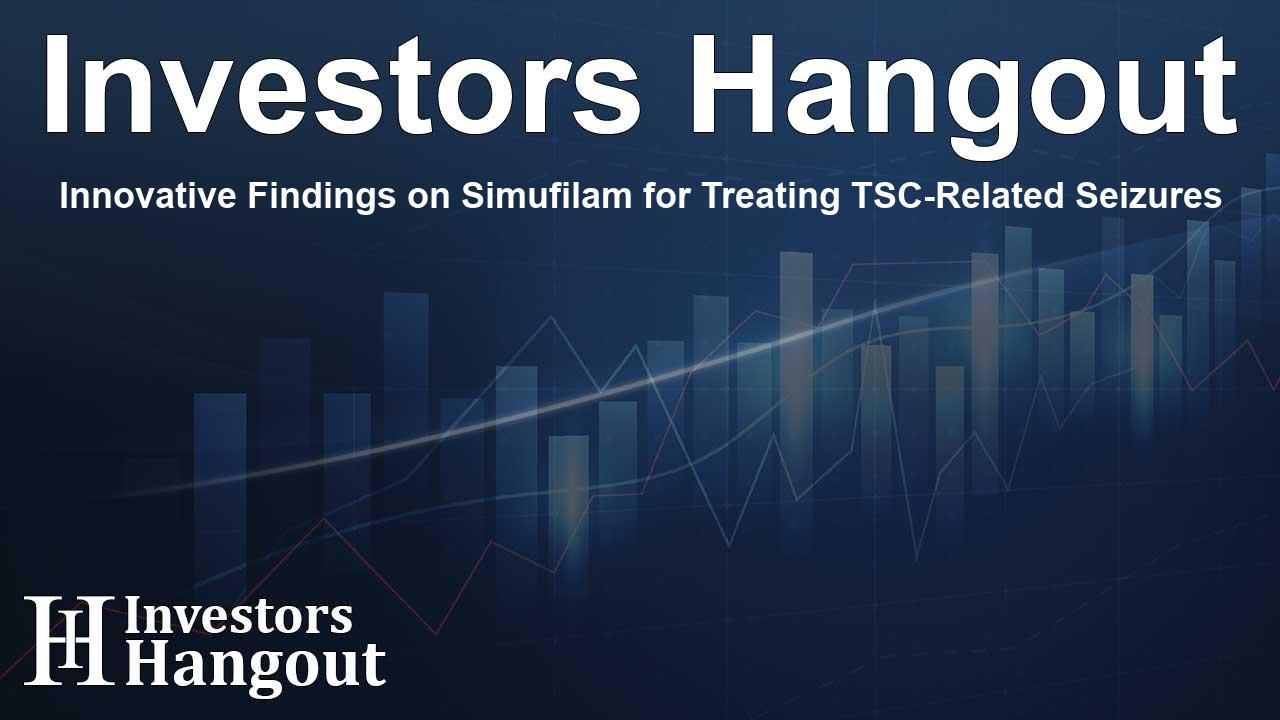Innovative Findings on Simufilam for Treating TSC-Related Seizures

Exciting Advances in TSC-Related Epilepsy Research
AUSTIN, Texas — Cassava Sciences, Inc. (NASDAQ: SAVA), a pioneering biotechnology company dedicated to developing novel treatments for central nervous system (CNS) disorders, has recently announced compelling preclinical results regarding its investigational drug, simufilam. This drug shows promise in addressing epilepsy associated with tuberous sclerosis complex (TSC). The latest research findings confirm simufilam's anti-seizure activity using a validated mouse model specific for TSC-related epilepsy.
Understanding Epilepsy in Tuberous Sclerosis Complex
Individuals diagnosed with TSC often endure lifelong challenges from seizures, leading to various severe comorbidities. A staggering two-thirds of these patients find current treatment options inadequate, as they remain resistant to conventional therapies. In light of these concerns, simufilam, an innovative oral small molecule, demonstrated significant effects on seizure activity in a robust TSC animal model.
In this research, conducted collaboratively with the TSC Alliance, simufilam produced a dose-dependent reduction in seizure frequency and severity. These findings corroborate previous results seen in studies from Yale School of Medicine, suggesting simufilam may serve as a groundbreaking treatment option for TSC-related epilepsy.
The Study: Methodology and Outcomes
The preclinical study utilized the Tsc1 conditional knockout (CKO) mouse model to evaluate simufilam’s therapeutic potential. This model is critical as it closely replicates the clinical manifestation of TSC-related epilepsy, wherein treated mice began to exhibit spontaneous seizures. Researchers observed seizure activity over three weeks while administering varying doses of simufilam, comparing these results against a control group receiving vehicle treatment alone.
The promising data revealed that simufilam effectively mitigated the progression of seizures. Statistically significant correlations emerged between the dosing of simufilam and the resultant seizure activity noted during the trial. Although not every parameter reached significance, the overall findings bolster the belief in simufilam’s efficacy as a potential TSC therapeutic.
Statements from Company Leadership
Dr. Angélique Bordey, Senior Vice President of Neuroscience at Cassava, expressed enthusiasm regarding the study's results, stating that these findings reinforce previously garnered data from other animal models that examined focal onset epilepsy. She highlighted the urgent need for effective treatments within the TSC community.
Rick Barry, President and CEO of Cassava, echoed these sentiments, noting that epilepsy is the most prevalent and challenging symptom of TSC. He emphasized the significant treatment gap faced by patients and urged the need for innovative alternatives. Barry announced plans to initiate a proof-of-concept clinical study for simufilam targeting TSC-related epilepsy in the foreseeable future, specifically focusing on the first half of 2026.
About the TSC Alliance
The TSC Alliance is an esteemed organization dedicated to improving life quality for individuals impacted by tuberous sclerosis complex through research advocacy and treatment advancements. Their mission includes fostering new therapies, increasing access to essential support, and collaborating with families and researchers to ensure optimal care and awareness.
About Cassava Sciences, Inc.
Cassava Sciences, Inc. (NASDAQ: SAVA), positioned in Austin, Texas, specializes in discovering novel therapies for CNS disorders, targeting conditions like TSC-related epilepsy. The company's developmental pipeline highlights simufilam, a proprietary small molecule believed to influence the filamin A protein's role in neuronal growth and function.
For further inquiries, interested parties can reach out to the company or visit their website to learn more about their exciting advancements in neurology and treatment options for complex conditions.
Frequently Asked Questions
What is simufilam?
Simufilam is an investigational oral small molecule developed by Cassava Sciences, designed to treat neurological disorders, particularly TSC-related epilepsy.
Why is TSC-related epilepsy challenging to treat?
Tuberous sclerosis complex is often associated with severe epilepsy, with many patients experiencing refractory seizures that do not respond to standard treatments.
What were the findings of the recent study?
The preclinical study showed that simufilam reduced seizure activity in a rodent model, providing evidence of its potential therapeutic effects for TSC-related epilepsy.
When is the clinical trial for simufilam set to begin?
Cassava is planning to initiate a proof-of-concept clinical study in the first half of 2026 to explore simufilam's effects in patients suffering from TSC-related epilepsy.
How can I learn more about Cassava Sciences?
For more information on their research and treatment options, you can visit Cassava Sciences' official website or reach out directly to their investor relations team.
About The Author
Contact Dylan Bailey privately here. Or send an email with ATTN: Dylan Bailey as the subject to contact@investorshangout.com.
About Investors Hangout
Investors Hangout is a leading online stock forum for financial discussion and learning, offering a wide range of free tools and resources. It draws in traders of all levels, who exchange market knowledge, investigate trading tactics, and keep an eye on industry developments in real time. Featuring financial articles, stock message boards, quotes, charts, company profiles, and live news updates. Through cooperative learning and a wealth of informational resources, it helps users from novices creating their first portfolios to experts honing their techniques. Join Investors Hangout today: https://investorshangout.com/
The content of this article is based on factual, publicly available information and does not represent legal, financial, or investment advice. Investors Hangout does not offer financial advice, and the author is not a licensed financial advisor. Consult a qualified advisor before making any financial or investment decisions based on this article. This article should not be considered advice to purchase, sell, or hold any securities or other investments. If any of the material provided here is inaccurate, please contact us for corrections.
